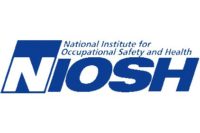From the (NIOSH) Director’s Desk
Championing young workers

 A “champion” is commonly defined as the victor of a competition or challenge. A less common usage of the word “champion,” one that has particular resonance for us at NIOSH, is the meaning that denotes an early advocate for an innovative cause or idea.
A “champion” is commonly defined as the victor of a competition or challenge. A less common usage of the word “champion,” one that has particular resonance for us at NIOSH, is the meaning that denotes an early advocate for an innovative cause or idea.
Miami-Dade County Public Schools (M-DCPS), the nation’s fourth largest school system, under the leadership of Superintendent Alberto Carvalho, prides itself on being this second type of champion. Being a champion of new and innovative ideas has made M-DCPS the first school system in the nation to recognize that work readiness skills—such as problem solving, collaboration, and information technology literacy—must also include competencies that equip young people to stay safe and healthy on the job and to contribute to safe, healthy, and productive workplaces. These competencies are critical given that more than 80% of teens will work at some time while in high school and most are unprepared for the hazards they face on the job. In fact, young people under age 25 are twice as likely as adults to get hurt at work.
Talking Safety
To address this disparity, NIOSH introduced a framework of eight core competencies that make up the foundational knowledge, skills, and abilities in occupational safety and health that individuals need to gain before entering the labor force. Key features of the NIOSH Core Competencies include the ability to understand work-related risks, to recognize and control hazards, to recognize rights and responsibilities on the job, and to communicate effectively when experiencing a job-related problem. Although NIOSH recommends teaching these competencies in the context of work, they are relevant to all areas of an individual’s life.
Research indicates that schools are one particularly effective locus for the delivery of vital workplace safety and health skills. To this end, NIOSH has integrated the Core Competencies into our free curriculum for middle and high schools, Youth@Work-Talking Safety. The curriculum, which NIOSH recently updated and revised, is customized for all U.S. states and territories to reflect local child labor laws and resources and is aligned with current educational standards. Talking Safety is a fun and easy tool for teachers to use in preparing their students for a lifetime of safe and healthy work.
20 years in the making
Talking Safety was first designed almost two decades ago by NIOSH and its partners, including the Labor Occupational Health Program at the University of California/Berkeley, the Massachusetts Department of Public Health, and the Education Development Center Inc. Stakeholders across the country have since championed it and continue to be important partners in its dissemination and diffusion. And now M-DCPS is the first-ever school district to enter into a formal agreement with NIOSH to integrate workplace safety and health into their academic programs using the curriculum.
During the 4-year collaboration, announced at the meeting of the M-DCPS Board of Education on April 15, researchers from the NIOSH Safe-Skilled-Ready Workforce Initiative (SSRWI) will train most of the 362 eight-grade science teachers on use of the updated NIOSH Talking Safetycurriculum. M-DCPS science teachers and their students (approximately 3,000 each year) will participate in an evaluation of the new curriculum. SSRWI researchers will also work with the science, technology, engineering, and mathematics (STEM) administrators in the Miami Dade schools to build a sustainable model for teaching foundational workplace safety and health skills. Already, M-DCPS has built life skills for safe and healthy work into the mandatory content to be covered in all eight-grade science classes—which will reach approximately 17,000 teens each year.
It only takes one champion to start a movement, but M-DCPS isn’t alone. NIOSH partners at the Oklahoma Department of Labor recently helped shepherd a bill through the state legislature—Oklahoma Senate Bill 262—that creates a new state law to incorporate workplace safety and health training into every school. State Senator Susan Paddack authored and championed the bill, which Governor Mary Fallin signed into law April 1. The Oklahoma State Department of Education will now work with the state Labor Department to make information regarding workplace safety training available to school districts, using the Oklahoma version of the Talking Safety curriculum.
These are just two of the numerous examples that illustrate how champions are blazing the trail for NIOSH innovations. They demonstrate how a few visionaries, through their dedication, perseverance, and out-of the-box thinking, can enhance the safety, health, and well-being of working youth, now and in the future.
Looking for a reprint of this article?
From high-res PDFs to custom plaques, order your copy today!






